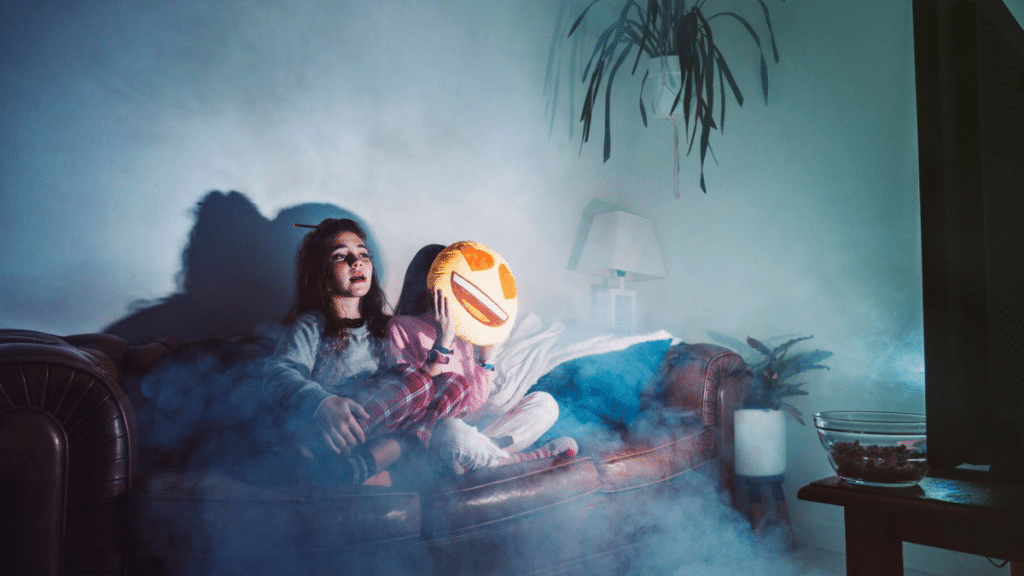What about fear is fun for a lot of people? What explains how one person might seek out horror movies and another person avoid them? If there is a psychology of horror flicks, what is it, and what, if any, are the mental health effects of watching these films? Should some people really avoid them for the sake of their mental health?
The Thrill of Being Afraid
Fear may not seem like much of a “thrill”—especially as compared to other activities which are known to be pleasurable and to increase dopamine in the brain. (Some of these activities, like sex, exercise, and drinking or using drugs, are pleasurable enough to become addictive, and in some cases may require treatment.)
Indisputably, though, a lot of people derive pleasure from watching scary movies. In other words, they draw fun and amusement from anticipating and experiencing stereotypically “negative” emotions like shock, horror, anxiety, and dread, which often belong to a “fight-or-flight” stress response.
This “thrill” isn’t just the subjective experience of being terrified and eluding danger. It’s a rush at the neurobiological level, according to some scientists. They say that watching a scary movie increases endorphins and dopamine in the brain, and that these feel-good neurotransmitters improve mood, relieve pain, and alleviate stress.
Mental Health Effects of Scary Movies
But are these mental health effects the same for everyone who watches scary movies? The answer to this question can depend on who you talk to.
More Emotional Resilience
Some experts say that even people with treatable anxiety issues can benefit from watching horror flicks. Why? Because horror movies offer a safe setting in which to experiment with and regulate fear, by encouraging viewers to imagine how to respond to different threats.
Experts contend that the exposure to fear and eventual catharsis, once we know we’re safe, can help those with generalized anxiety find release from tension and, over time, build resilience to stress. As some evidence in support of that claim, a 2021 study found that horror fans were “more psychologically resilient” than non-horror fans during the height of the COVID pandemic. (How much of that resilience can really be attributed to horror flicks remains questionable.)
Insomnia and Sleep Issues
For other people, the mental health effects of consuming terror may be mixed at best. A horror movie may keep you awake and disrupt your sleep, because of insomnia, nightmares, or symptoms of physiological arousal like a pounding heart or tight muscles.
Sleep is a key indicator of the state of one’s mental health, so avoiding a horror movie to protect your sleep is sensible self-care.
Anxiety and Panic Symptoms
A scary movie can also trigger panicky feelings or symptoms of a full-blown panic attack. This should not be surprising, since the goal of any horror movie is to scare you and amp up your adrenaline.
Once this happens, you may begin to experience the physical sensations associated with a fight-or-flight response: your heart begins to race; your palms sweat; your breathing becomes shallow; and so on. People with a higher anxiety sensitivity may be more prone to this experience.
The Case for Watching Horror Movies
Horror is a booming industry, and these films abound. (If in doubt, consult Rotten Tomatoes’ list, “200 Best Horror Films of All Time.”) Even those who aren’t avid consumers can name an iconic moment that most terrified them. A case in point: the climactic maze scene in “The Shining” or the perils of taking a shower in “Psycho.”
As for the mental health case for watching horror movies? It’s a question best answered by the individual.

